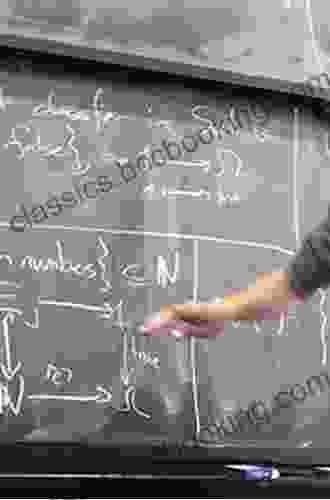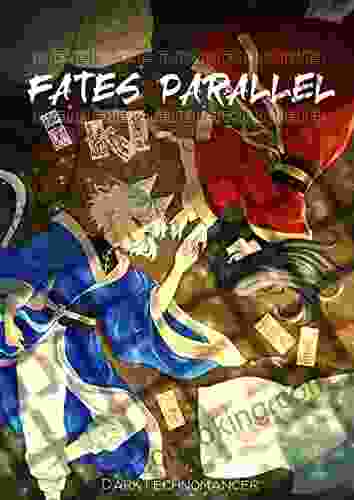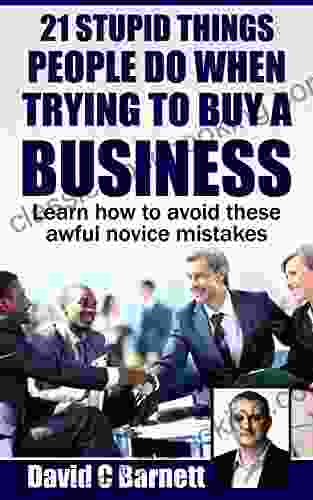Unlocking the Power of Applied Category Theory: A Journey into Mathematical Elegance and Practical Applications

: Unveiling the Hidden Gems of Applied Category Theory
Category theory, once an abstract and esoteric branch of mathematics, has emerged as a powerful tool with far-reaching applications in diverse fields such as computer science, physics, engineering, and modeling. Applied category theory extends this power beyond theoretical foundations, providing a systematic and elegant framework for solving complex problems in practice.
This article invites you on an enlightening journey into the world of applied category theory. We will explore its fundamental concepts, uncover its practical applications, and showcase how it empowers researchers and practitioners to tackle challenges with unprecedented clarity and efficiency.
4.7 out of 5
| Language | : | English |
| File size | : | 16621 KB |
| Text-to-Speech | : | Enabled |
| Enhanced typesetting | : | Enabled |
| Print length | : | 350 pages |
| Screen Reader | : | Supported |
Delving into the Core Concepts of Applied Category Theory
At the heart of applied category theory lies the notion of categories, abstract structures that capture the relationships between objects and the arrows that connect them. These categories provide a powerful language for modeling complex systems, abstracting away unnecessary details while preserving the essential structure.
Functors, which map categories to other categories, play a crucial role in applied category theory. They allow us to translate problems from one domain to another, facilitating cross-disciplinary collaboration and the transfer of knowledge between fields.
Natural transformations, morphisms between functors, provide a means to compare and relate different constructions, offering insights into the underlying structure and relationships within categories.
Harnessing Applied Category Theory for Practical Applications
The true power of applied category theory lies in its ability to provide elegant and effective solutions to real-world problems. Let's delve into specific examples to illustrate its transformative impact:
Computer Science: Simplifying Software Development and Verification
In the realm of computer science, applied category theory has revolutionized software development and verification. It provides a structured approach to modeling software systems, enabling developers to reason about their behavior and correctness with greater precision.
Category theory has also found applications in programming language design, type theory, and concurrency theory, leading to more expressive and reliable software.
Physics: Unifying Diverse Theories and Advancing Quantum Computing
Within the realm of physics, applied category theory has served as a unifying force, providing a common framework for describing diverse physical phenomena. It has facilitated the development of new theories in quantum mechanics, relativity, and condensed matter physics.
Moreover, category theory has played a pivotal role in the advancement of quantum computing, providing a language for describing and manipulating quantum systems.
Engineering: Modeling Complex Systems and Optimizing Designs
In the field of engineering, applied category theory has proven invaluable for modeling complex systems, such as electrical circuits, mechanical systems, and fluid dynamics. It enables engineers to abstract away unnecessary details, focusing on the essential relationships and interactions within the system.
Category theory has also led to the development of optimization techniques that help engineers design more efficient and reliable systems.
Modeling: Capturing the Essence of Complex Phenomena
Applied category theory has emerged as a powerful tool for modeling complex phenomena in various disciplines, including biology, finance, and social sciences.
By abstracting away unnecessary details and focusing on the underlying structure, category theory enables researchers to gain deep insights into the dynamics and relationships within complex systems.
Empowering Researchers and Practitioners: The Benefits of Applied Category Theory
The adoption of applied category theory has brought forth numerous benefits for researchers and practitioners across diverse fields:
Enhanced Abstraction and Modeling Capabilities
Applied category theory provides a powerful framework for abstracting away unnecessary details and capturing the essential structure of complex systems. This enables researchers to focus on the core relationships and interactions, leading to a deeper understanding of the system's behavior.
Improved Communication and Collaboration
The use of a common language and notation provided by category theory fosters communication and collaboration between researchers from different fields. It allows them to share ideas, compare results, and build upon each other's work more effectively.
Increased Rigor and Precision
Applied category theory introduces a high level of rigor and precision to the modeling and analysis of complex systems. Its formal foundations ensure that models are well-defined and that reasoning is carried out in a systematic and consistent manner.
Novel Insights and Discoveries
The application of category theory has led to novel insights and discoveries in various fields. Its ability to reveal hidden relationships and patterns has fostered breakthroughs in diverse areas of research and practice.
: Embracing the Power of Applied Category Theory
Applied category theory has emerged as an indispensable tool for researchers and practitioners seeking to tackle complex problems with elegance and efficiency. Its ability to abstract away unnecessary details, capture essential relationships, and provide a common language for communication has revolutionized diverse fields, from computer science to physics and beyond.
As we continue to delve deeper into the transformative power of applied category theory, we can anticipate even greater breakthroughs and discoveries in the years to come. This is an exciting time to be involved in this rapidly growing field, unlocking the hidden potential of mathematics to address the challenges of the 21st century.
Join the journey into applied category theory and witness firsthand its transformative power. Embrace its elegance, rigor, and practical applications to empower your research, enhance your modeling capabilities, and unlock the full potential of your field.
Further Exploration: Delving Deeper into Applied Category Theory
- Category Theory for Programmers
- Applied Category Theory for the Working Mathematician
- Applied Category Theory (nLab)
- What is Category Theory? (Computerphile)
- Category Theory for Programmers (Coursera)
4.7 out of 5
| Language | : | English |
| File size | : | 16621 KB |
| Text-to-Speech | : | Enabled |
| Enhanced typesetting | : | Enabled |
| Print length | : | 350 pages |
| Screen Reader | : | Supported |
Do you want to contribute by writing guest posts on this blog?
Please contact us and send us a resume of previous articles that you have written.
 Book
Book Novel
Novel Page
Page Chapter
Chapter Text
Text Story
Story Genre
Genre Reader
Reader Library
Library Paperback
Paperback E-book
E-book Magazine
Magazine Newspaper
Newspaper Paragraph
Paragraph Sentence
Sentence Bookmark
Bookmark Shelf
Shelf Glossary
Glossary Bibliography
Bibliography Foreword
Foreword Preface
Preface Synopsis
Synopsis Annotation
Annotation Footnote
Footnote Manuscript
Manuscript Scroll
Scroll Codex
Codex Tome
Tome Bestseller
Bestseller Classics
Classics Library card
Library card Narrative
Narrative Biography
Biography Autobiography
Autobiography Memoir
Memoir Reference
Reference Encyclopedia
Encyclopedia David L Demets
David L Demets Dawnn Karen
Dawnn Karen David Mcilroy
David Mcilroy Dave Gerr
Dave Gerr David M Kotz
David M Kotz Deb Howcroft
Deb Howcroft David E Kaplan
David E Kaplan David Tracey
David Tracey Dave Freer
Dave Freer Dean Pohlman
Dean Pohlman David Villanueva
David Villanueva Danielle Koehler
Danielle Koehler David Wallace
David Wallace David G Kingdon
David G Kingdon Danielle Wright
Danielle Wright Davida Hartman
Davida Hartman David Jenyns
David Jenyns Daniel R Solin
Daniel R Solin David Hillson
David Hillson David Murphy
David Murphy
Light bulbAdvertise smarter! Our strategic ad space ensures maximum exposure. Reserve your spot today!

 Miguel de CervantesUnveiling the Secrets of "The Mark of the Assassin": A Captivating Tale by...
Miguel de CervantesUnveiling the Secrets of "The Mark of the Assassin": A Captivating Tale by... Stan WardFollow ·4.2k
Stan WardFollow ·4.2k William GoldingFollow ·11.5k
William GoldingFollow ·11.5k Javier BellFollow ·6.5k
Javier BellFollow ·6.5k Jermaine PowellFollow ·5.6k
Jermaine PowellFollow ·5.6k Willie BlairFollow ·13.3k
Willie BlairFollow ·13.3k Rob FosterFollow ·12k
Rob FosterFollow ·12k Bo CoxFollow ·11k
Bo CoxFollow ·11k Terry BellFollow ·14.8k
Terry BellFollow ·14.8k
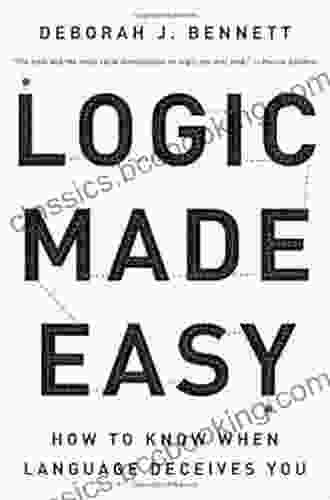
 Cameron Reed
Cameron ReedHow to Know When Language Deceives You
Unmasking the Power of...

 Robbie Carter
Robbie Carter50 Things To Know About Planning Home Schooling...
: The Power of Hands-On Learning Embarking...
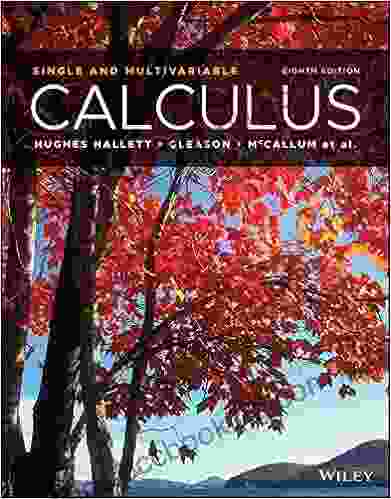
 Julio Cortázar
Julio CortázarCalculus: Single and Multivariable, 8th Edition — The...
Calculus is the...

 Jaime Mitchell
Jaime MitchellBunnicula and Friends: A Spooktacular Tale of Mystery and...
In the quaint little town of Celeryville,...

 Josh Carter
Josh CarterPeppa Easter Egg Hunt: Join Peppa Pig on an...
Get ready for...
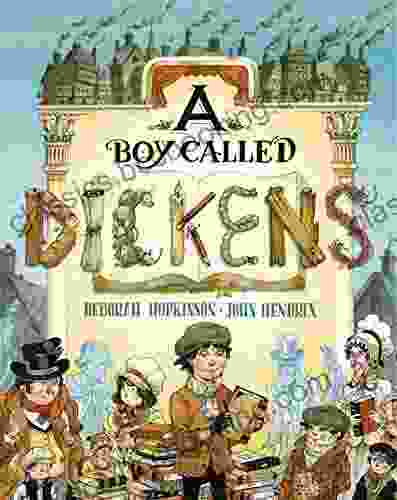
 Donovan Carter
Donovan CarterBoy Called Dickens: A Journey into the Childhood of a...
Delving into the...
4.7 out of 5
| Language | : | English |
| File size | : | 16621 KB |
| Text-to-Speech | : | Enabled |
| Enhanced typesetting | : | Enabled |
| Print length | : | 350 pages |
| Screen Reader | : | Supported |


